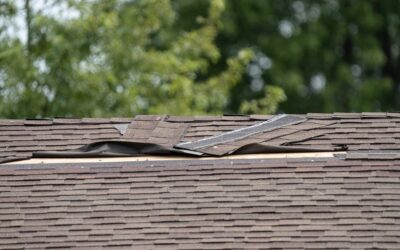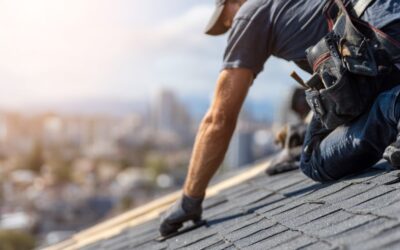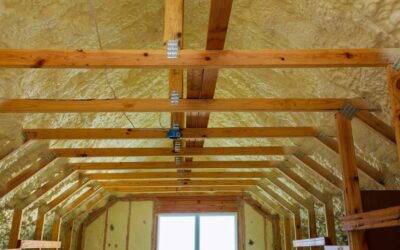How to Choose the Best Commercial Roofing Company for Your Business
When it comes to protecting your business, your roof plays a critical role. A strong, reliable roof safeguards your employees, inventory, and operations from the elements. Whether you’re dealing with a flat roof, metal roofing, or built-up roofing system, choosing the best commercial roofing company is essential for quality, longevity, and peace of mind.
In this guide, we’ll explore everything business owners need to know about commercial roofing—from selecting the right contractor to understanding costs, maintenance, and benefits.
Why Choosing the Best Commercial Roofing Company Matters
A commercial roof is a significant investment, and the quality of installation or repair directly impacts its lifespan and performance. Partnering with the best commercial roofing company ensures:
- Durability and Longevity: Proper installation prevents leaks, structural issues, and premature deterioration.
- Compliance with Building Codes: Experienced contractors follow local regulations, safety standards, and manufacturer guidelines.
- Energy Efficiency: High-quality roofing systems can improve insulation and reduce energy costs.
- Warranty Protection: A reputable contractor offers warranties on labor and materials, giving businesses added security.
- Reduced Maintenance Costs: Correct installation and professional maintenance minimize repairs and avoid unexpected expenses.
Choosing the right commercial roofing company isn’t just about price—it’s about trust, expertise, and long-term results.
Key Services Offered by the Best Commercial Roofing Companies
Commercial roofing companies offer a range of services to meet the unique needs of businesses, including:
1. Commercial Roof Installation
A professional installation is the foundation of a long-lasting roof. Top companies handle various roofing types:
- Flat Roofs: Common for warehouses and office buildings; includes TPO, EPDM, and PVC membranes.
- Metal Roofs: Durable, energy-efficient, and often used in industrial buildings.
- Built-Up Roofs (BUR): Layers of roofing felt and asphalt; ideal for flat or low-slope roofs.
- Modified Bitumen: Asphalt-based, provides excellent waterproofing for commercial structures.
2. Commercial Roof Repairs
Even the best roofs require maintenance and occasional repairs. Services include:
- Leak detection and repair
- Storm damage restoration
- Rust or corrosion treatment for metal roofs
- Seam and flashing repairs
3. Roof Replacement and Restoration
When a roof reaches the end of its lifespan or suffers significant damage, the best commercial roofing companies offer:
- Full roof replacement
- Roof restoration to extend lifespan without full replacement
- Energy-efficient upgrades and new roofing materials
4. Maintenance Programs
Proactive maintenance keeps your roof in top condition. Services include:
- Regular inspections
- Cleaning and debris removal
- Gutter and drainage maintenance
- Preventive repairs to extend roof life
5. Emergency Roofing Services
Storms, leaks, and sudden damage require fast response. Top commercial roofing companies provide:
- 24/7 emergency services
- Temporary roof repairs to prevent further damage
- Coordination with insurance claims for business owners
Factors to Consider When Choosing the Best Commercial Roofing Company
Selecting a contractor involves more than comparing quotes. Consider these critical factors:
1. Experience and Expertise
Look for companies with extensive experience in commercial roofing. Roofing large structures requires specialized knowledge and skills, so ensure your contractor has handled projects similar to yours.
2. Licensed and Insured
Always verify that the company is properly licensed and insured. This protects you from liability in case of accidents or property damage during the project.
3. Reputation and References
Check online reviews, testimonials, and references. A highly rated company with a strong track record demonstrates reliability and quality service.
4. Warranty and Guarantees
The best commercial roofing companies provide warranties on both materials and labor. A warranty indicates confidence in their workmanship and provides long-term protection for your investment.
5. Transparent Pricing
Ask for detailed estimates, including labor, materials, permits, and potential additional costs. Transparency prevents surprises and ensures your project stays within budget.
6. Use of Quality Materials
Top roofing companies partner with trusted manufacturers to provide durable, high-performance materials that meet industry standards.
7. Safety Practices
Roofing can be dangerous, particularly on large commercial buildings. Ensure your contractor follows OSHA guidelines and implements proper safety protocols.
Top Types of Commercial Roofing Systems
Understanding your roofing options is essential when choosing a commercial roofing company. Here are the most common types:
1. TPO (Thermoplastic Olefin) Roofing
- Single-ply membrane roofing
- Reflective and energy-efficient
- Ideal for flat or low-slope roofs
2. EPDM (Ethylene Propylene Diene Monomer)
- Durable synthetic rubber roofing
- Resistant to UV radiation and weathering
- Low maintenance and cost-effective
3. PVC (Polyvinyl Chloride) Roofing
- Strong and durable membrane
- Resistant to chemicals and fire
- Long-lasting with reflective surface for energy efficiency
4. Metal Roofing
- Long lifespan, often 40+ years
- Can be installed in panels or standing seam styles
- Excellent for industrial and commercial buildings
5. Built-Up Roofing (BUR)
- Layers of asphalt and felt
- Provides excellent waterproofing
- Ideal for low-slope commercial buildings
6. Modified Bitumen
- Asphalt-based with reinforced sheets
- Heat-welded or torched-on for extra durability
- Great for flat roofs and industrial applications
Each roofing type has pros and cons. The best commercial roofing company will assess your building’s needs, budget, and local climate to recommend the ideal system.
Signs You Need a Commercial Roof Repair or Replacement
Business owners should know when to act to prevent costly damage. Common warning signs include:
- Leaks and Water Damage: Persistent leaks, water stains, or mold growth indicate roof failure.
- Cracked or Blistered Membranes: Signs of aging, weathering, or material failure.
- Loose or Missing Fasteners: Particularly in metal roofs, this can compromise structural integrity.
- Pooled Water on Flat Roofs: Indicates poor drainage and potential damage.
- Rust or Corrosion: Affects metal roofs and can lead to leaks or panel failure.
- Excessive Energy Costs: A deteriorating roof may reduce insulation efficiency.
Addressing these issues early with a trusted commercial roofing company can save significant money in repairs or prevent full roof replacement.
Benefits of Hiring the Best Commercial Roofing Company
1. Professional Expertise
Experienced contractors understand commercial roofing systems, installation techniques, and manufacturer specifications.
2. Efficient Project Completion
Top companies have skilled crews, proper equipment, and experience to complete projects on time, minimizing disruption to your business operations.
3. Long-Term Cost Savings
Quality installation and maintenance reduce future repair costs, prevent leaks, and extend roof lifespan.
4. Warranty Protection
A professional company provides warranties that safeguard your investment and give peace of mind.
5. Safety Compliance
Licensed roofing companies follow OSHA safety guidelines, reducing liability and ensuring a safe working environment.
6. Assistance With Insurance Claims
Reputable roofing companies help navigate insurance claims, ensuring you receive fair compensation for storm or accident-related damage.
Cost of Commercial Roofing
Commercial roofing costs vary depending on the roofing system, size, complexity, and materials. Average cost estimates include:
| Roofing Type | Average Cost per Square Foot | Lifespan |
|---|---|---|
| TPO | $5–$9 | 15–20 years |
| EPDM | $4–$8 | 20–25 years |
| PVC | $6–$10 | 20–30 years |
| Metal | $7–$12 | 40–70 years |
| BUR | $6–$10 | 20–30 years |
| Modified Bitumen | $5–$9 | 15–25 years |
Additional factors affecting cost:
- Roof pitch and accessibility
- Labor rates in your area
- Removal of old roofing materials
- Permits and inspections
While cost is important, selecting the best commercial roofing company ensures you get value, durability, and proper installation.
How to Maintain Your Commercial Roof
Even the best roofs require regular maintenance. Tips include:
- Routine Inspections: Schedule professional inspections at least twice a year.
- Clean Debris: Remove leaves, branches, and dirt that can trap moisture.
- Check Drainage Systems: Ensure gutters, downspouts, and drains are clear.
- Address Minor Issues Early: Fix small leaks, loose fasteners, or minor cracks promptly.
- Protect Coatings: Reapply reflective or protective coatings as recommended.
- Document Maintenance: Keep records for warranty and insurance purposes.
Regular maintenance from a trusted roofing company maximizes the life of your roof and reduces unexpected expenses.
Questions to Ask Before Hiring a Commercial Roofing Company
- Are you licensed, insured, and bonded?
- How many years of commercial roofing experience do you have?
- Can you provide references or examples of past projects?
- What types of roofing materials and systems do you specialize in?
- Do you offer warranties on labor and materials?
- Will you provide a detailed written estimate?
- How do you handle safety on large commercial projects?
- Do you offer maintenance programs or emergency services?
- Can you assist with insurance claims for roof damage?
- What is your expected timeline for completion?
Asking these questions ensures you choose a contractor that meets your needs, budget, and quality expectations.
Why Local Roofing Companies Are Often the Best Choice
Choosing a local contractor has
 (440) 307-2060
(440) 307-2060




